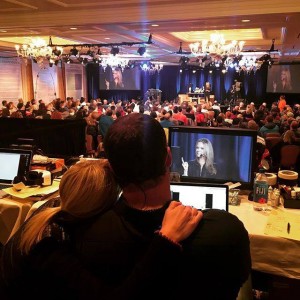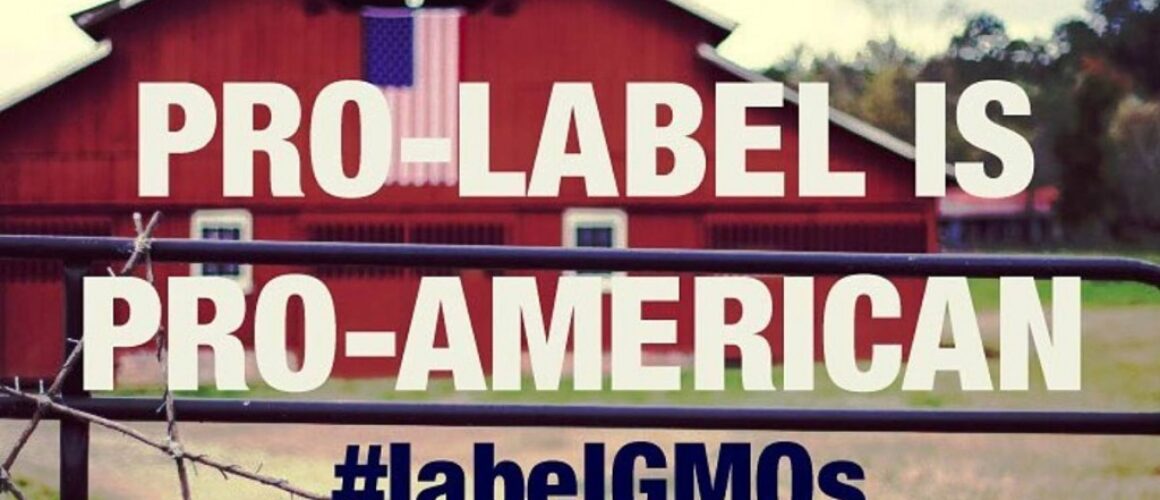Bring It Home: A New Food Economy for Americans
A few weeks ago, I spoke at a financial conference. My talk was titled “The New Food Economy.”
In it, I discussed the the incredible transformation that is happening in our food system and the opportunities in it.
In the last few years, we have seen explosive growth in the “free-from” category, as consumers around the country are trying to protect their health and move to #dumpthejunk.
The demand for organic continues at the retail level, in grocery stores like Kroger, in Wal Mart, in Costco and in Safeway, and online with the launch of Thrive Market.
However, we don’t just wake up with a new set of eyes. In many cases, this food awakening and demand for food that is free from artificial ingredients, additives, artificial growth hormones and GMOs has been proceeded by a diagnosis. Something sends us into the grocery store with a different lens: for some, it is food allergies, for others, diabetes and for others, perhaps it’s cancer.
The escalating rates of pediatric cancers, food allergies, diabetes, obesity, autism and so many other conditions, are forcing consumers to pay attention to how their food is made. None of us would choose the diagnosis that brought us here, but once our eyes have been opened, we can not unlearn the information. We are waking up to the fact that diet can play a significant role in health and disease, and as a result. there is an incredible movement towards transparency in our food production.
We see it in the number of food shows on television, we see it in the number of apps we can download, and we see it in the health of our loved ones.
As our country is hit with increasing rates of disease, it is impacting everything from our personal finances, to the health care costs in our companies, to the U.S. economy. We spend more than any other country on the planet on health care and disease management. There is so much that we can to do clean up our food supply, especially when we learn that U.S. food companies are already making their products without artificial ingredients, artificial dyes and artificial growth hormones overseas. It is especially hard to also learn that our own U.S. food companies label GMOs in their products overseas but not for their American consumers. That double standard hits us in the gut, but it is also a reminder that making these changes is very much within reach. We are not asking these companies to reinvent the wheel, simply to bring it home.
Those companies that have nothing to hide are winning. Campbell’s and General Mills stepped forward, calling for mandatory GMO labeling, as the organic industry sees growth at 11-14% per year.
At the event, hosted by Tony Robbins, I discussed the opportunities in the food industry as well as the bottleneck: the fact that less than 1% of U.S. farmland is organic, despite the exploding demand. In the United States, we have over 900 million acres under farm management, but only 5.5 million of them are organic, despite the incredible interest from companies like Wal Mart, Costco, General Mills and others. So who provides the supply to this growing demand? Right now, it’s being outsourced to other countries, countries more invested in organic food production. companies that have hedged themselves against the biotech industry’s promises of GMOs. In other words, we are giving away that economic upside to our trading partners. Their farmers are winning, their economies are winning, their food industry is winning because in America, we don’t have enough diversity – less than 1% of our farmland is organic.
 During any talk, my absolute favorite part is the Q&A. But at this financial conference, this audience was different. The audience had people in it, who if they’d wanted to, could have reverse-engineered a hedge fund.
During any talk, my absolute favorite part is the Q&A. But at this financial conference, this audience was different. The audience had people in it, who if they’d wanted to, could have reverse-engineered a hedge fund.
Their Q&A reflected that, and I was asked what I thought would happen to Monsanto. There was no emotion in it. What happens next?
I said, “If Enron taught us anything, you can only financially engineer your earnings model for so long. Monsanto has financed share buybacks with debt and are doing everything they can to secure policy in their favor. But the truth is that a growing number of countries are opting out of their signature products.”
They will look to M&A activity, they will look to secure policy in their favor.
Needless to say, when the biotech industry learned I’d given this talk, they threw up all over social media. But it didn’t change the truth.
As I flew home from the event, the emails starting coming in, the stories, the gratitude from those who had attended. “I have a son with peanut allergy….” “My mom is battling cancer…..” Diet is not one size fits all, but food that is free-from artificial ingredients is better for everyone.
What I’ve found in the last decade of giving these talks, is that once you learn of this double standard, you can’t unlearn it. Many then ask: Why are American companies making their products without these ingredients overseas but not here? How can we take personal responsibility for our health if we don’t know how our food is produced or what is applied to it? And why, only in the last month, did the FDA finally announce that they would start testing for the amount of glyphosate on our food? Last year, the World Health Organization declared this product a probable carcinogen.
But nothing could have prepared me for what happened next.
I got home on Sunday night.
On that Tuesday, Monsanto came out with an announcement that they had to take their earnings numbers down.
On that Thursday, France stood in opposition to the the relicensing of Monsanto’s glyphosate herbicides in Europe.
On that Friday, Goldman Sachs downgraded Monsanto to a sell rating.
And then, headlines that Sweden and the Netherlands are joining France in opposition to Monsanto’s signature product.
Beyond that, Portland announced that they are suing the agrochemical giant, Citigroup downgraded them, and in an amazing turn of events, the Senate slowed a bill that would have taken away our right to know what is in our food. The Senate hedged on deciding whether Americans should know whether or not GMOs are in our food.
And General Mills stepped into that, announcing that they would label GMOs. They listened to their consumers.
The food industry is realizing that by listening to the chemical industry, they failed to hear their consumers.
The food companies and American families do not need a chemical company running our food system. It’s not in the best interest of either.
And this agrochemical model, genetically engineering seeds to withstand increasing doses of weedkillers now considered a “probable carcinogen” is a business model that the world increasingly no longer trusts, especially from the company making these product here in America.
In China, there are companies making GMOs. In China, GMOs are labeled. Most companies are proud to represent their products in a consumer-facing way. It builds brand loyalty. But here in the U.S., Monsanto was able to get the food industry to do its bidding, to carry its dirty water and to hide the fact that their products, their GMOs, were in our everyday foods.
Thankfully, this stage is over. With pressure coming from around the country, state labeling bills like Vermont, efforts to do the same in Colorado, California, Oregon and so many other states, it has become increasingly clear that transparency is not a fad. The anti-labeling movement is un-American. The food industry is moving with its consumers, stepping away from spending millions on anti-labeling campaigns that protect the interests of the chemical companies.
It’s a big move for the industry, and consumers could not be more grateful.
We need all hands on deck.
It is time to build a better food system for our farmers, our families and our future. And that starts with our own food companies.
It starts with expanding organic agriculture in the U.S., in order to participate in the trade agreements for organic produce that are happening between Mexico and European countries. It starts with the 21st century consumer.
It is time to hedge ourselves against this monoculture of corn and soy created by the chemical industry, to diversify our farming economy and to protect our future. It is time to reallocate our subsidies so that more than 1% of them can be used to support fruit and vegetable farmers.
It’s time to diversify here, to open these opportunities to American farmers and American food companies.
Food security is national security.
Securing our health secures our country. It is a national security issue. Right now, 7 out of 10 young Americans can’t quality for the military. Where we were once too fat to fight, we are now too allergic, too diabetic. We can fix this. There’s upside in this new food economy for our food companies and for our families.
Let’s bring it home, America.
It’s time to bring the new food economy home.
